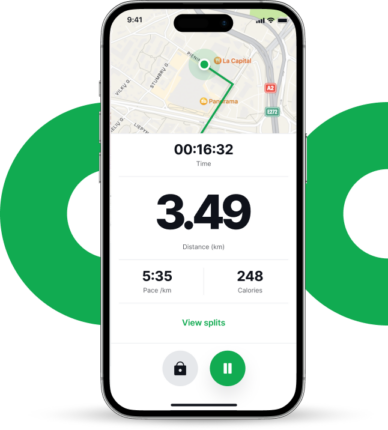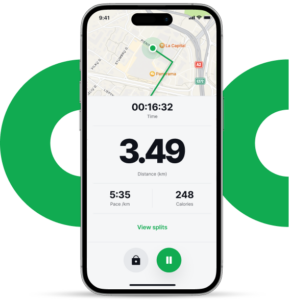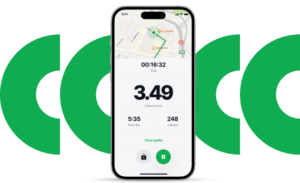If you’re new to running, it’s easy to sprint out the door only to realize 10 minutes in that you’ve completely exhausted your fuel tank. You begin breathing heavily and significantly slow down, if not coming to a halt altogether.
It happens!
Luckily, determining what your running pace should be is a great way to ensure you can go the distance. Maintain a consistent speed so that you can amp up your miles and eventually cross that finish line.
So, what do you need to know? Let’s take a look.
In This Article:
Why Running Pace Is Important
Your running pace essentially refers to the average pace you should run at to achieve your goal. This number is usually reflected as a minute per mile number. For instance, if you intend to finish a half marathon in under 2 hours, you want to aim for at least 9:09 per mile.
During organized races, your speed often determines what group you start the race with, as well as potentially what race bunny you should follow. When you register for a race, you will have to put in your determined pace, which will clump you into your starting group.
Generally, it’s all about finding a pace that is comfortable for you. It ensures you can run the entirety of the distance you intend to run, and you don’t empty your energy tank right out of the gate. You’ll know you’re doing it right when you can hold a conversation while running.
Finding your speed can also help you set and improve your time and distance goals. When you know your current comfortable speed, you can gradually push those limits and improve your results.
How to Determine Your Running Pace
It’s so easy to jump the gun and sprint at the start. You’re excited and motivated. It’s only natural. Yet, as we all know, this doesn’t often end well. You end up walking or not going as far as you had wanted. It can be discouraging.
So, how do you determine your running pace? What can you do?
When you set out on the run, set a timer. Watches explicitly designed for running have a GPS built-in, which can help track your results.
To figure out your pace, divide your total time by your distance. And do this multiple times, on numerous runs. This will help you get an average since not every run is the same.
There are also various pace calculators or speed calculators to help you out. For example, if you want to achieve a particular time for a set distance, you can figure out what pace you need to get to by using such calculators.
Some great calculators include:
- Active Running Pace Calculator
- Runner’s World Running Pace Calculator
- Strava Running Pace Calculator
You can also figure out the distance you can go in a certain amount of time at your regular pace. For instance, if it’s 9:03 per mile, you can expect to run 10 miles in 90 minutes and 30 seconds or somewhere around there.
It’s also important to note here that your race pace may vary. Your race pace is the speed you can maintain for the distance of the race. For example, you will have a faster pace for a short run over a half marathon. Interestingly, interval training or switching between fast and slow rates can help you tackle those longer distances easier.
Improving Your Pace
Alright, so how can you improve your pace? Here are a few tips:
- Increase your distance. This can help improve your results at shorter distances, as well as help amp up your endurance.
- Try interval training. Throw in a few speed intervals into your longer runs. You don’t have to do this just within running itself. You can also perform these workouts outside of your regular running regime.
- Listen to your body. If you need rest, take it. You won’t be able to improve your pace if you’re forcing a tired body to go-go-go.
- Have a plan. Following a set training program can help you get to where you want to be. Usually, any running training program involves long and short runs. You can also throw in interval workouts to go with it.
Key Takeaways
Your running pace should be comfortable, and you should be able to talk as you run. Any faster, and you might burn yourself out. Determine your own running pace off of a few different measurements, and take the average.
- Your running pace is usually referred to in minutes per mile.
- There are various measurements you can take and calculators you can use to determine your running pace.
- Use interval training by increasing your distance and more to help you improve your pace. That way, you can smash all your goals!














